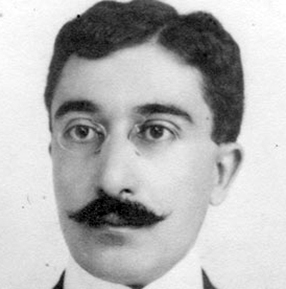Walls
translated from the modern Greek by John Cavafy
Without reflection, without mercy, without shame,
they built strong walls and high, and compassed me about.
And here I sit now and consider and despair.
It wears away my heart and brain, this evil fate:
I had outside so many things to terminate.
Oh! why when they were building could I not beware!
But never a sound of building, never an echo came.
Insensibly they drew the world and shut me out.
Τείχη
Χωρίς περίσκεψιν, χωρίς λύπην, χωρίς αιδώ
μεγάλα κ’ υψηλά τριγύρω μου έκτισαν τείχη.
Και κάθομαι και απελπίζομαι τώρα εδώ.
Άλλο δεν σκέπτομαι: τον νουν μου τρώγει αυτή η τύχη·
διότι πράγματα πολλά έξω να κάμω είχον.
A όταν έκτιζαν τα τείχη πώς να μην προσέξω.
Aλλά δεν άκουσα ποτέ κρότον κτιστών ή ήχον.
Aνεπαισθήτως μ’ έκλεισαν από τον κόσμον έξω.
This poem is in the public domain. Published in Poem-a-Day on June 10, 2023, by the Academy of American Poets.
“Walls” appears in Poems Written in Greek by C. P. Cavafy Translated by J. C. Cavafy (Self-published, 1927). The modern Greek original was published in 1897 as a four-page leaflet which included an earlier version of the English translation by John Cavafy, the poet’s older brother. In “‘Words That Tell and Hide’: Revisiting C. P. Cavafy’s Closets,” published in the Journal of Modern Greek Studies, vol. 23, no. 2 (October 2005), Dimitris Papanikolaou, associate professor of modern Greek studies at the University of Oxford, writes that “instead of leaving his silences to be manipulated by the systems of power immediately built around them, [C. P. Cavafy] made them part of his poetic project and thus exposed their own dissonance. When seen in this way, Cavafy’s concealment starts as a strategy to expose the very mechanisms that drive him to that concealment. The well-known poem ‘Τείχη’ (‘Walls’) works exactly in this way: it is society that builds thick high walls around one [. . .]. The closet is a prison [. . .]. Meanwhile, as this oppressive barrier is written down, it is also exposed, thus becoming a starting point for self-expression. [. . .] Cavafy fashioned the closet not as a space for silence, but as a position from which to speak.”

